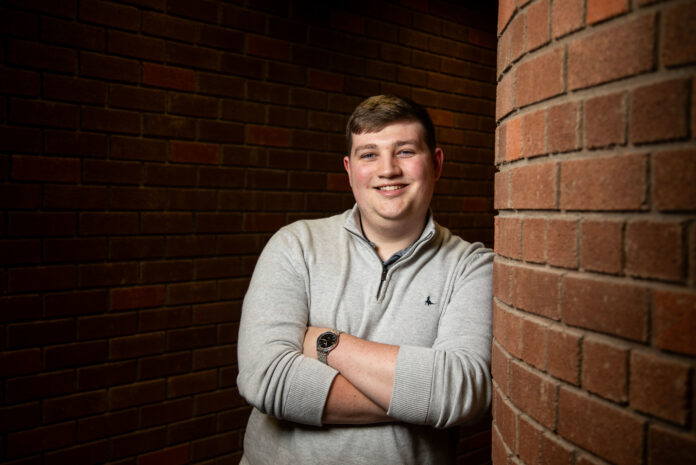
A SOFTWARE engineering student at University of Limerick is working on a project that could help to revolutionise the early detection of cerebral palsy.
Aaron Roche, a 20-year-old student on the Immersive Software Engineering (ISE) programme at UL, is working on the ELEVATE project – a ground-breaking five-year research programme aiming to improve the prevention, detection, and treatment of early brain injury and cerebral palsy in Ireland.
The UL student, originally from Wexford, selected the ELEVATE project for his ISE residency at the university, a transformational teaching and research initiative that hopes to disrupt computer science education.
When Aaron was selecting his residency, he was looking for something that was more than just 1s and 0s, he was searching for something that connected to something personal and said that the ELEVATE project “ticked all the boxes”.
“One of the biggest issues with cerebral palsy is that it can’t be diagnosed early enough. It’s usually after two years when the child is diagnosed and that’s too late for early intervention,” he said, explaining that the aim of the ELEVATE project “is to create screening algorithms to assess the risk of cerebral palsy in children from soon after birth”.
He says that the work of the project is something that hits home for him.
“I went to St Peter’s College Secondary School in Wexford and there was a boy in our year who had cerebral palsy that affected his entire body. Our school motto was ‘Disce Prodesse’, which means ‘learn to be useful’, and there was a Disce Prodesse school award every year. He was nominated for this award because he was so inspiring to the rest of us. He was an inspiration for me to go this route.”
Part of the ELEVATE project aims to develop a screening process that could identify potential risks even before birth, which Aaron says involves “looking at hundreds of variables … My job is to build the software that can sift through all this data and help predict the risk of cerebral palsy.”


